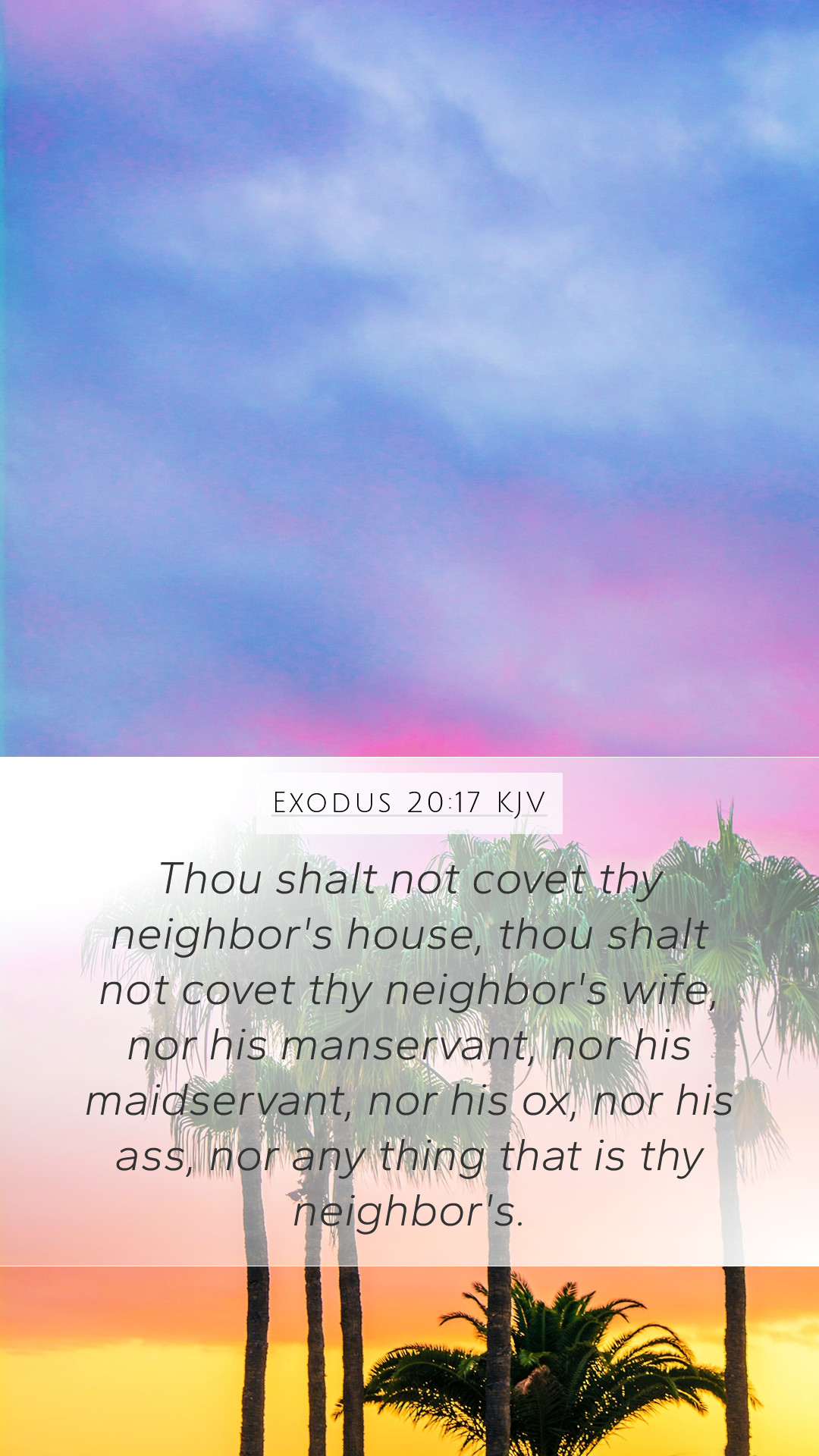Understanding Exodus 20:17
Exodus 20:17 states: "You shall not covet your neighbor's house; you shall not covet your neighbor's wife, or his male servant, or his female servant, or his ox, or his donkey, or anything that belongs to your neighbor."
Bible Verse Explanation
This commandment is part of the Decalogue, or the Ten Commandments, and it addresses the inner desires of an individual, emphasizing the significance of controlling one's thoughts and desires. The core of this commandment lies in the prohibition against coveting, which can lead to other sins if left unchecked.
Biblical Commentary Insights
- Matthew Henry:
Henry suggests that the heart's desires often lead to outward actions. Coveting indicates a discontentment with what one has and a wish for what belongs to others, which can ultimately lead to serious sins against our neighbors.
- Albert Barnes:
Barnes explains that this command points out the root of many sins—envy and greed. By focusing on our neighbor's possessions and status, we are led away from gratitude and contentment with God's blessings in our own lives.
- Adam Clarke:
Clarke emphasizes that this commandment serves to protect social relationships and property rights. Coveting disrupts harmony and can instigate theft, adultery, and other sins. This commandment stands as a preventative measure for societal integrity.
Key Themes and Meanings
The commandment against coveting is multifaceted. It highlights:
- The Nature of Desire: The commandment suggests that unchecked desire can corrupt our moral compass.
- The Impact on Relationships: Desiring what others have can lead us to act against them, damaging relationships.
- The Value of Contentment: Cultivating contentment in our lives fosters gratitude and peace with what we have.
Application of Exodus 20:17
In a contemporary context, this verse challenges us to evaluate our motives and desires. Here are some applications:
- Conduct regular self-assessment of our desires regarding others' possessions and relationships.
- Practice gratitude for what we have, reinforcing a spirit of contentment.
- Encourage a mindset that fosters joy in others’ successes rather than envy.
Cross References
Exodus 20:17 relates to several other Bible passages that address similar themes:
- Romans 7:7: Paul discusses the law’s revelation of sin, including coveting.
- James 1:14-15: Describes how desire leads to sin and ultimately death.
- 1 Timothy 6:6-10: Highlights the dangers of the love of money and coveting material wealth.
Conclusion
Exodus 20:17 is a profound reminder of the importance of controlling our inner desires and fostering a spirit of contentment. Engaging with this commandment through Bible study can yield significant insights into everyday living and relationships.
Bible Study Insights
For those involved in bible study groups or seeking bible study resources, exploring the meanings and applications of commandments like Exodus 20:17 can enrich discussions and lead to greater understanding of Scripture. Consider utilizing bible study tools and bible study guides to dive deeper into this command.


